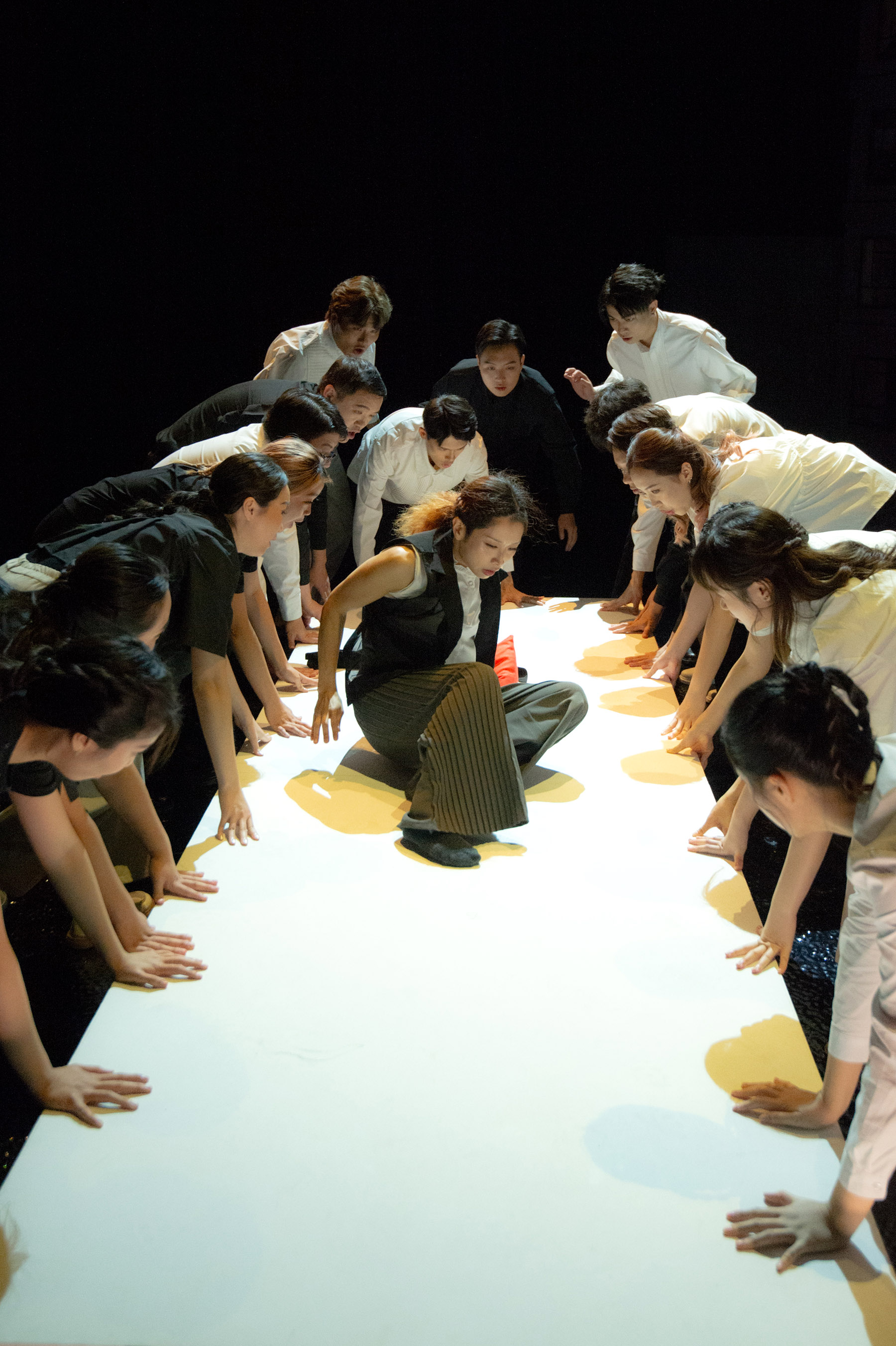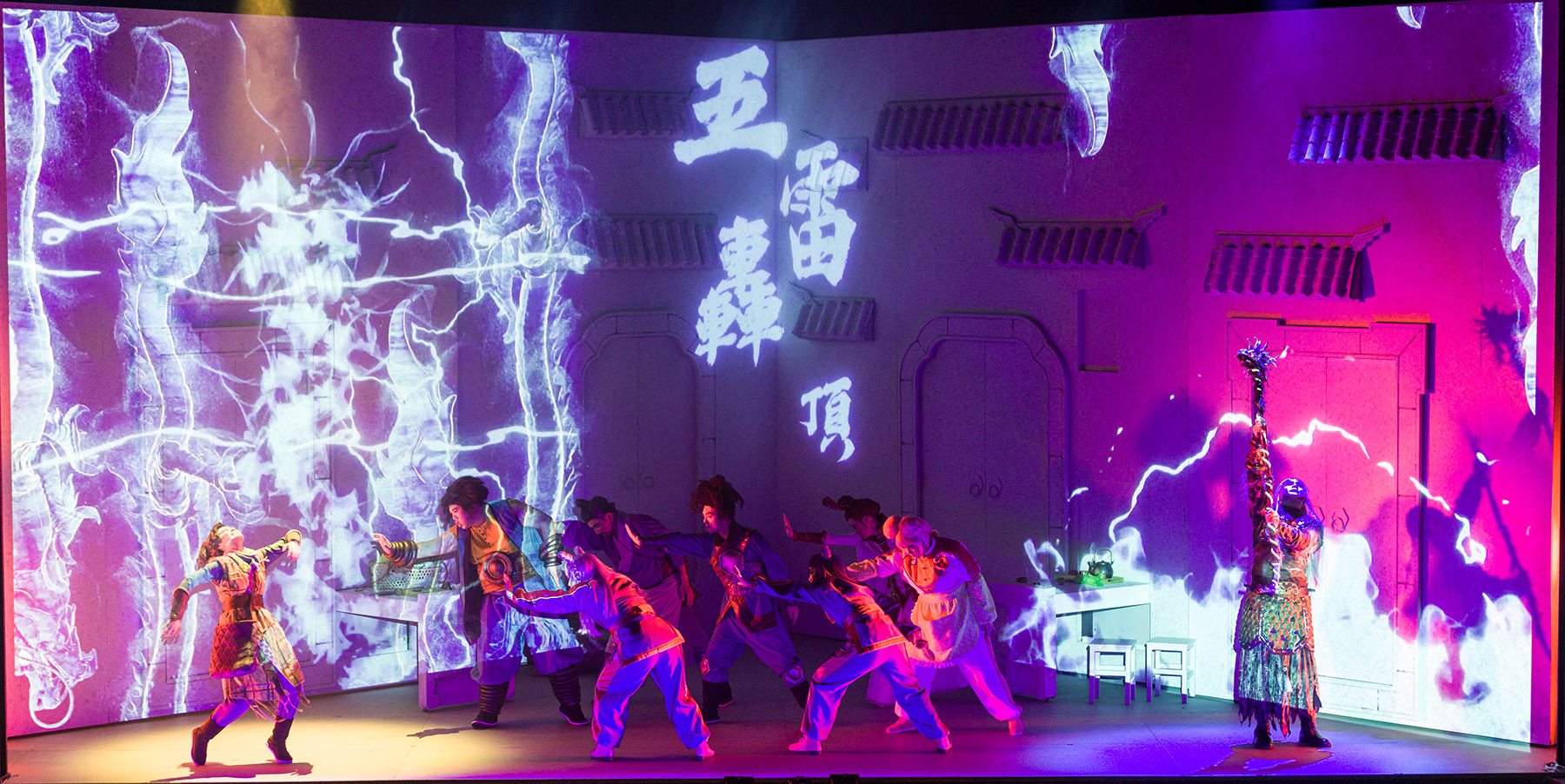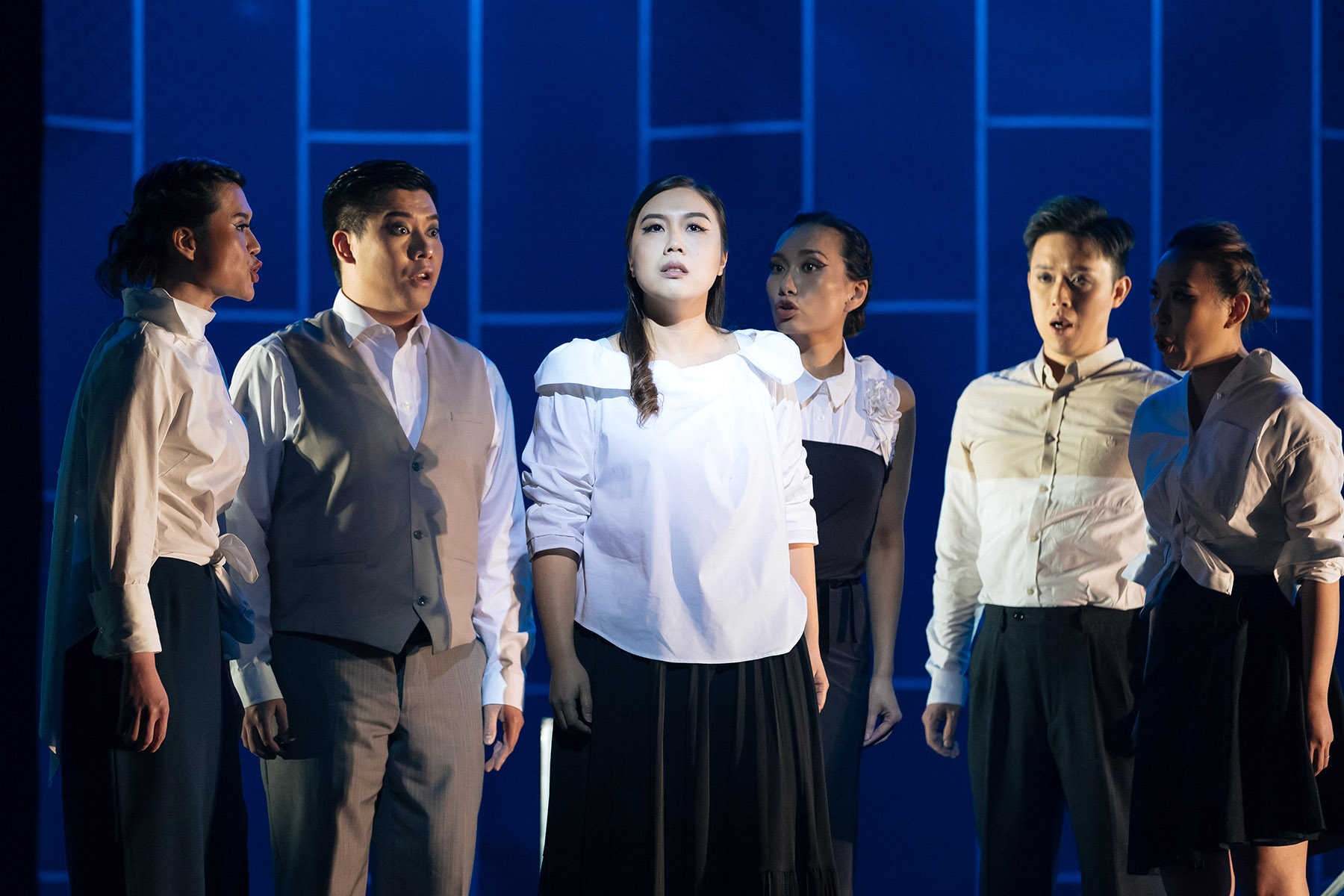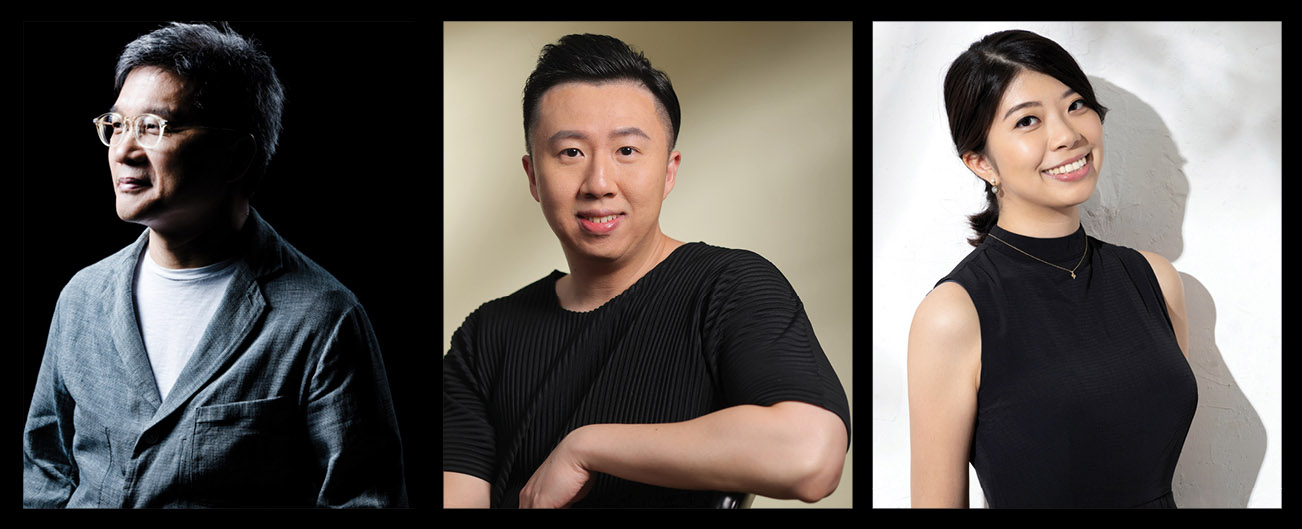Though Western classical-style music in Cantonese stage productions is a rarity, intrepid Hong Kong composers might have found a way of working around the unique challenges posed by the tonal complexities of the language. Rob Garratt reports.

Cantonese is a colorful, colloquial language — a vibrant and idiosyncratic tongue that is uniquely expressive, and imbued with an inherent singsong quality. Yet paradoxically, these are the very same reasons why Cantonese does not figure widely in formal classical music.
Composer Daniel Lo is among a few trailblazers to attempt an original Cantonese stage production in the Western classical idiom. Premiering in August, the 85-minute Pressed for Love isn’t just homegrown choral group Singfest’s first attempt at staging an original work. Lo believes the piece could be the first cantata-style art-song cycle ever composed entirely in Cantonese.
The reason why it has taken this long to materialize is owed to the richly tonal nature of Cantonese. Teachers swear that one needs to master nine distinct tones in order to truly grasp the language. And yet that’s not the whole story.
READ MORE: HK musicals rock
“There’s a stereotypical idea that spoken Cantonese is not good enough — not highbrow or formal enough — to be taken seriously and used in a high-art context,” asserts Pressed for Love lyricist Wong Yi. She was naturally thrilled to settle that score when Lo approached her to work on the project.

Getting in tone
The tonal nature of Cantonese —in which the rise and fall of different syllables change their meaning —renders composing melodies inherently complicated. The words in a lyric are required to tonally match the flow of any tune they are set to — a fact that has handcuffed pop lyricists for decades. In the Cantopop industry, traditionally, the music always comes first, leaving gifted lyricists to shoehorn in tonally harmonious words later. Lo says that he “always felt unsatisfied” by the mismatch between the idea contained in words and the music they were set to in the Cantopop numbers he listened to during his growing-up years.
The same music-first philosophy is almost always true of traditional Cantonese Opera, explains Chan Hing-yan, a music professor and head of the University of Hong Kong’s School of Humanities. The process is the antithesis of the Western tradition, which in opera typically sees a librettist’s work set to fresh music. Art songs often repurpose existing verse — a method perhaps best epitomized in Franz Schubert’s recasting of Wilhelm Müller’s poems as Winterreise.
Inspired by such storied fare, Lo broke away from the conventions of Cantonese music when he invited Wong to adapt her highly popular short-story collection, Ways to Love in a Crowded City, into a song cycle, at the behest of Singfest resident artist Kenix Tsang. Lo insisted on receiving a finished sheet of verse before getting to work on composing its musical interpretation. He let the natural flow of the text’s tones dictate the melodies he would write — an approach many told him was useless. “A lot of compositional techniques usually employed in Western classical music cannot be borrowed directly,” explains Lo.
“Our composers are 99 to 100 percent educated in the Western method, where one of the main devices is counterpoint,” Chan says, referring to a musical device that sees two vocal lines sing the same lyric while moving in different melodic directions — an impossibility in Cantonese.

To navigate the idiosyncrasies of Cantonese, Lo arrived at his own methods, analyzing the relative pitch of each character based on the tone that precedes it. He found that there was a natural range each word transition could accommodate — while small tone shifts can only cover a few musical notes, at times it was also possible to jump as high as an octave. Meanwhile, rising and falling tones are accommodated by the natural glissando in a native singer’s ornamentation. “The singers really have to adapt, as a lot of tones in Cantonese might not be very good for projection,” Lo says.
Alongside contemporary Chan Kai-young, Chan Hing-yan is one of the few brave souls to have previously tackled the challenge. Notably, he was musical director of the landmark multilingual Hong Kong Odyssey cantata — a piece in which two-thirds of the libretto was in Cantonese — staged at the 2017 Hong Kong Arts Festival (HKAF). It followed the relatively low-profile Cantonese chamber opera Fish in Hand by Alain Chiu, presented at the 2015 New Visions Festival.
Among Chan’s five major chamber operas, four are in Mandarin, including Heart of Coral (2013) and Ghost Love (2018). His first such work in Cantonese, Kungfood, debuted in 2023.
Having worked in both languages, Chan estimates that it is three times more difficult to compose in Cantonese than in Mandarin — partly because Mandarin has just four main tones, but mainly because there is a lot more flexibility left up to a vocalist’s interpretation. “If you listen to Mandarin pop music, it never follows the tones,” he says. “If you did the same in Cantonese, it just wouldn’t work.”

Close collaborators
Lo and Wong have previously collaborated twice. Wong was the librettist tasked with adapting two of legendary Hong Kong writer Xi Xi’s short stories for Lo’s score to the 2021 production, Women Like Us — the first Cantonese chamber opera commissioned by HKAF.
While that production adheres to the formal Cantonese of the original text, in Pressed for Love, Wong chose to represent the realities of modern city life by writing primarily in the colloquial Cantonese of the cha chaan teng and social media variety. “I’ve heard from opera singers that they feel completely different when they sing in colloquial language,” Wong says. “There’s more direct emotion.”
At the song cycle’s premiere, at the Hong Kong Cultural Centre over the weekend of Aug 29, bemused nods of recognition were especially evident during the chorale number, Spring Slumber, Unaware of Dawn, which saw Singfest’s animated, marching vocalists paint an audio caricature of the city’s daily morning symphony of dripping air cons, screaming babies, car horns and construction drills. “The production is very true to everything I thought about and felt and wanted to achieve with the book,” Wong says. “It’s just in a completely different form.”
The source text, Ways to Love in a Crowded City, is a medley of romance-adjacent vignettes in which Hong Kong’s cramped environment is the silent character shadowing the narrative. Wong says she wanted to capture how cliches — Hong Kong being a claustrophobic, fast-moving “shopping paradise”, for example — translate as a lived reality.
ALSO READ: Finding a common ground
Lo handpicked just seven of the book’s 44 stories to adapt. Each chosen story inspired both a chorale piece for 16 unaccompanied voices, typically used to paint a third-person narrative, as well as a stand-alone solo, or duet, piece — backed by musical director Dominic Lam on piano — charting a given character’s interior world. This meant stripping the stories to their most basic emotions — a contrasting musical-literary palette of humor, grief, anger and jealousy.
In the centerpiece, Crowded City, the chorus sings out a list of ironic statements. As well as being home to the “most extravagant high-rises”, Hong Kong boasts the most “congested tunnels”, “prolonged work hours” and “protracted interactions” — a biting yet reductive distillation of the ironic detachment in the source text’s title.
Wong says her process could be summed up in a simple allegory: “I figured out that the process of adapting my stories into a song cycle was akin to taking apart a perfectly fine spaceship, and then using the same materials to transform it into a sailboat. The idea is that they’re both vessels that carry people through a distance — but the context is completely different.”


